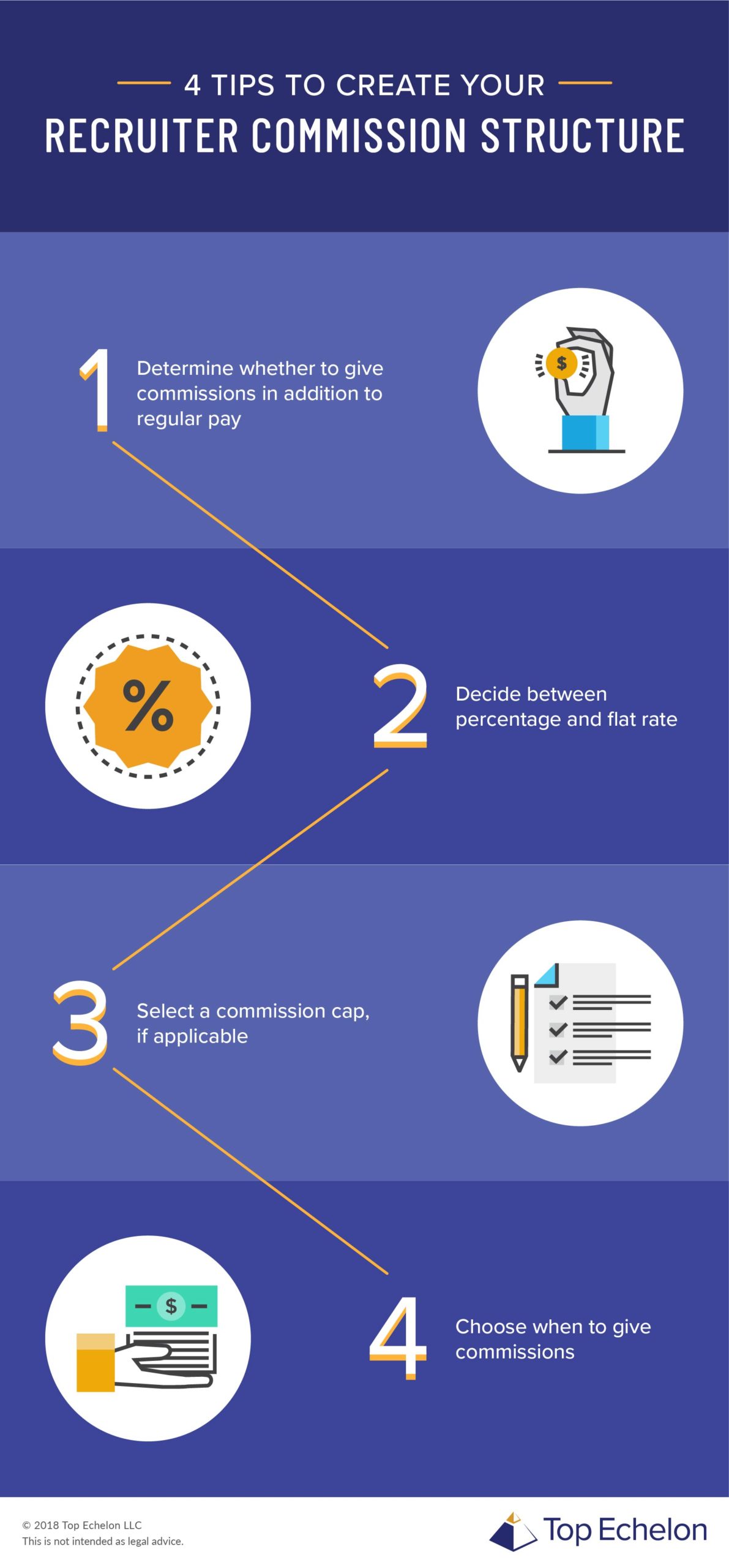Agencies may earn money through recruiter fees, but how do recruiter employees get paid? Recruitment agency owners may decide to compensate their employees with a variety of wages, including commissions. How does a recruiter commission structure work?
Commissions are wages that reward workers for accomplishing a goal, like making a placement. Using commission-based pay can be an incentive for recruiters to take on more job orders.
Whether you’re an agency owner or a recruiter, learn about an agency recruiter commission structure below.
What is a recruiter commission?
Commissions are common in sales-related industries. In recruiting, commissions are popular among agency and executive recruiters. Recruiter commissions are wages given to recruiters when they reach certain goals, such as making candidate placements.
Commissions can be a percentage of the total recruiter fees an agency receives, or they can be a flat amount. Recruitment agencies decide on the recruiter commission plan.
Generally, commissions are payments made in addition to regular wages. But in recruiting, it’s not uncommon for a recruiter to only earn commissions. Agencies may decide to pay recruiters in only commissions.
Recruiter commissions can be either capped or uncapped. An uncapped recruiter commission structure means the recruiter earns commissions on as many placements as they can make. A capped commission means the agency owner does not need to pay commissions after a certain amount.
Establishing a recruiter commission structure
If you’re an agency owner, you may wonder how to pay your recruiter employees with commissions. Or if you’re an agency recruiter, you might be curious about how you’ll get paid.
Agencies structure commissions differently. But to create a typical recruitment commission structure, you need to make some decisions.
Use the following four tips to create your recruiter commission structure.
1. Determine whether to give commissions in addition to regular pay
Some recruitment agencies provide commission-only wages while others offer them in addition to a guaranteed base rate. You must decide whether commission wages are an agency recruiter’s only source of income.
Recruiters who only earn commissions likely have varying earnings from month-to-month. Paying a recruiter only in commissions may encourage them to be more productive.
2. Decide between percentage and flat rate
Again, you can compensate your agency recruiters with percentage or flat commissions. This means that you either give the recruiter a percentage of the total recruitment fee or a fixed dollar amount.
Decide these details of the commission rate before creating your plan. And, consider letting agency recruiters know how commissions are based before extending a job offer.
The commission rate you provide should depend on whether the recruiter earns commission-only pay or commissions and regular wages.
For example, a recruiter who only earns commissions may receive a 60% commission. On the other hand, a recruiter who also earns regular wages may earn 20% commissions.
3. Select a commission cap, if applicable
If you decide to cap a recruiter’s commission, select a reasonable limit. The limit you set typically depends on whether you pay recruiters with commissions or commissions and regular wages.
You must also select a time period for the commission cap. For example, you might set a monthly or annual cap.
4. Choose when to give commissions
Deciding when to give commissions is arguably the most essential part of the recruiter commission plan.
Generally, recruiters who earn only commissions receive them per placement. But, there are other options for giving agency recruiters commissions.
Commissions can be based on recruiting metrics like:
- Placement fee
- Number of placements
- Average time to fill
For example, you might decide to give a recruiter a commission when they make five placements in a month.
When deciding when to give commissions, set reasonable goals. If possible, use historical data to choose feasible recruiting metrics numbers. Or, do a competitor analysis to see what other agencies offer.










